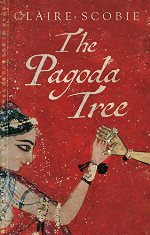The Pagoda Tree
In 18th-century India, women are the chattels of gods or men. When she is branded a handmaiden of Shiva, young Maya’s destiny seems set, but her intelligence, beauty and grace give her better prospects. She trains with Palani, famed dancer and courtesan to the Prince of Tanjore. After death and disaster strike, Maya flees to Madras, where she puts her talents into practice.
Several men impact her life: Mudaliar, a dubash (middleman) for the East India Company; Thomas Pearce, an ambitious young trader; and an anguished missionary, Walter Sutcliffe.
The novel opens with an enigmatic episode featuring Maya’s Aunt Sita that foreshadows its frustrating structure. There are abrupt switches in points of view and timeframe, unconnected paragraphs and loose ends. The main love affair has unromantic elements, and there are transcendental passages at odds with the straightforward narrative elsewhere. The female characters are mostly tragic, and the attitudes and behaviors of the men fluct

uate with their fortunes. The risks that Maya takes in her quest for love can make her seem too modern, and the dialogue is not always consistent with period. As in the beginning, the conclusion is uncertain.
Meticulous research and cultural authenticity are evident on every page, but readers unfamiliar with the background may feel bewildered without a clearer historical context behind some of the more horrific episodes. (The endnotes do help.) Yet in spite of its shortcomings, the vivid atmosphere does hook you in, and the unpredictable storyline becomes strangely compelling. Perhaps in its own way it is a metaphor for India itself – a mass of contradictions – and a second reading might pay better dividends. Recommended, but with reservations.






